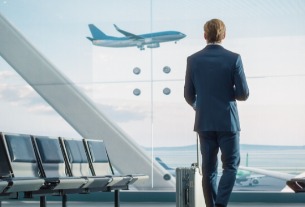Consumerisation and rapidly evolving technology are spearheading a dramatic shift in corporate travel management. How the industry responds will determine whether these changes represent insurmountable challenge or significant opportunity.
Traditional travel management companies (TMCs) can choose to accept the knock-on effect caused by the increasing adoption of technology, or they can choose to adapt to the new world and create new opportunities to maintain relevance.
I firmly believe there is, and will continue to be, a need for TMCs, but surviving and thriving in the digital age means changing your service offering.
According to IBISWorld over the five years through 2015-16, corporate travel services industry revenue in Australia is expected to rise by an annualised 1.8% to A$817.5 million. Industry revenue is expected to grow by 7.2% in the current year due to a rise in business tourist nights and positive business confidence.
Exploiting that market potential means evolving your value proposition. One way to do this is to negotiate deals that demonstrate true value to your client base.
Travel managers are increasingly seeking value for money and this is an area where TMCs have an opportunity to demonstrate their true value and retain business.
One such opportunity exists around airline ancillaries. As technology innovation introduces functionality to allow consumers to purchase airline ancillaries separately to the airfare, TMCs can leverage these value-adds to their advantage.
How? Well, the way in which airfares are presented will see further transparency between TMCs and their clients. Clients will have a true sense of the value of any and all negotiated ancillaries, whether included in their own corporate or consortia deals, because such information will be presented in a way that advertises the value of the buyer.
Take club or lounge access, as a specific example. If you can negotiate the price of a single entry club access with an airline partner as an added ancillary to the airfare, the consumer will be presented with a branded airfare-and-ancillary deal. Doing so offers easy comparison of the value of your airfare to the others presented. This leaves no question of the value offered by the TMC.
As a result, sourcing airfares will become a much more complex exercise for the corporate. Expert support from travel management specialists, or potentially outsourced services, will be required to optimise the many negotiation levers made available through the airline ancillary segment.
Ultimately this means that TMCs have an opportunity to capitalise by charging for such services and enhancing their revenue streams.
Surviving in changing times requires tenacity, adaptability and a commitment to evolving your business model. Without this, TMCs run a very real risk of going extinct.
Read original article




